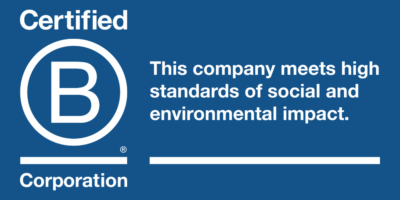At Riverwater, our work as “active owners” is intended to help bring to bear our clients’ values. In this way, active ownership is a natural extension of our efforts to make investment selections consistent with those values.
At times, active ownership can also be a natural extension of our efforts to achieve a strong return on investment for our clients.
Intuitively, it’s clear that as companies improve in vital ways—say, the “G” in “ESG”—their businesses stand to improve as a whole. Such improvements can serve as a catalyst for broader recognition of a company’s positive qualities and staying power. That recognition, in turn, can spark additional investor interest in a company’s shares, potentially leading the share price higher.
Data bears out these themes. Improvements in ESG themes, sometimes referred to as positive “ESG Momentum,” have been shown in research to be strongly associated with stronger stock-price performance than lack of (or even negative) movement along ESG dimensions.
To the extent positive performance accompanies efforts to improve companies, industries and society, that’s clearly the best of all possible outcomes for our investors and society.
How do we actively engage with the companies in which we invest? Specifically, we do so in situations where we believe our efforts can help make a material difference in supporting a company’s ESG efforts—whether educating them on the benefits of beginning to incorporate ESG and offering resources to help them do so, or working with them to improve upon their current ESG efforts.
We refer to this work as “active ownership,” and we believe strongly in its capacity to make positive impacts on the companies we engage and, by extension, their industries, and society as a whole.
When we talk about active ownership, it’s important to note that we don’t mean we are “activist investors.” Activists include those who build a large position in a company’s stock in order to prompt, say, a change in business model or corporate structure At Riverwater, we call our approach “active, not activist,” as we prefer a collaborative mode of interacting with companies on their ESG journeys.
Specifically, in our active-ownership work, we seek to consult with management teams and boards of directors on best practices around one or more ESG dimensions we believe to be especially important for that company or industry.
For example, at a company in the materials sector, we might see energy conservation as particularly relevant—both for the company’s own competitive positioning and for social good. At a company in the financial services sector, on the other hand, while we applaud energy conservation, we would likely see other factors as more materially relevant to the business and its stakeholders.
In many cases, companies themselves clearly recognize which ESG factors are material to their business and industry. Particularly with larger companies, our active-ownership work may center on already established priorities, which many companies note in annual corporate sustainability reports.
For many companies around the world, part of the framework for those reports—and therefore potentially for our engagement focus areas—is the UN Global Compact. Nearly five thousand companies have signed onto the Global Compact, and as part of that commitment, they have identified one or more Sustainable Development Goals (SDGs) for specific focus.
The UN SDGs are useful in helping guide corporate change by pointing toward a shared vision of progress. Each SDG includes a specific vision for achievement as part of the 2030 Agenda for Sustainable Development, adopted by all UN Member States in 2015.
They are:
- No Poverty
- Zero Hunger
- Good-Health and Well-Being
- Quality Education
- Gender Equality
- Clean Water and Sanitation
- Affordable and Clean Energy
- Decent Work and Economic Growth
- Industry, Innovation and Infrastructure
- Reduced Inequalities
- Sustainable Cities and Communities
- Responsible Consumption and Production
- Climate Action
- Life Below Water
- Life on Land
- Peace, Justice and Strong Institutions
- Partnerships for the Goals









